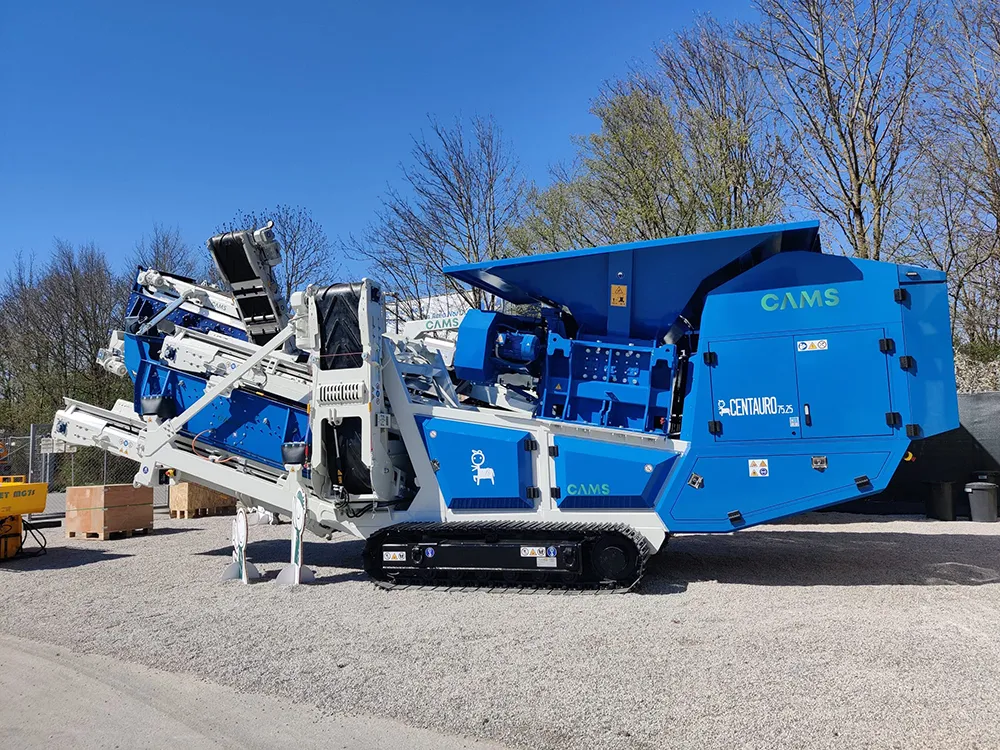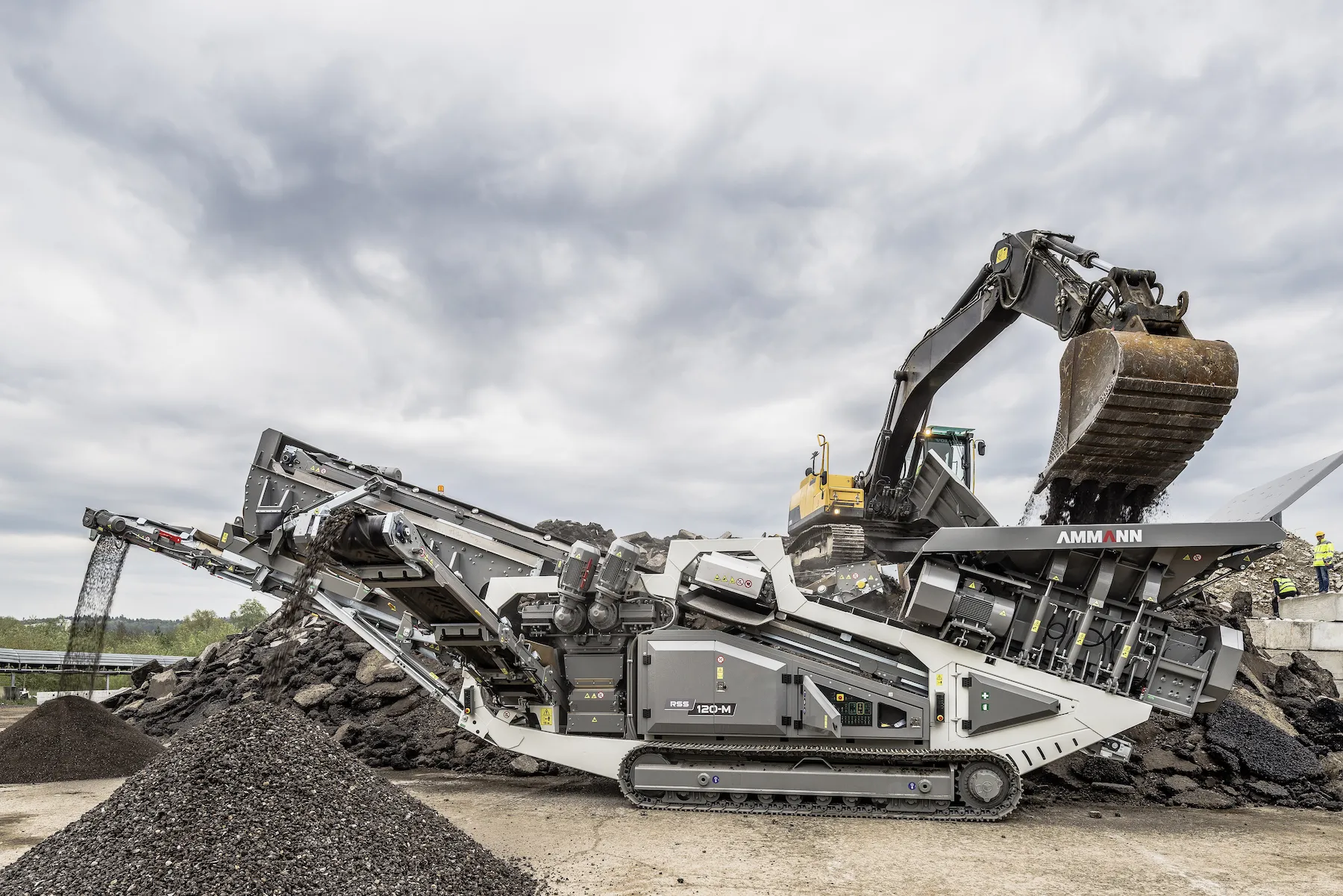
Just like its larger siblings, the Centauro 75.25 is versatile and environmentally friendly. It integrates a shredder, screen and magnetic separator in a single mobile unit designed for on-site operation. It can process challenging or wet materials, is remotely operated via radio control and can be powered by either a hybrid (diesel/electric) or fully electric system.
This specific model features an FPT F36 Stage V diesel engine (105kW) and a MeccAlte alternator (165kVA). As with the rest of the Centauro range, it is compatible with renewable-energy sources, including solar power. It also sports its own distinctive logo, designed by street artist and illustrator burla22. This original artwork expresses the machine’s personality, moving away from standard industrial design to embrace a new style of product communication.
But burla22’s vision extends beyond the equipment itself; it illustrates CAMS’ philosophy, embodied by “The Future is Green”. His dreamlike artwork imagines a world where inert-waste recycling is widespread, raw materials are used more sustainably and nature is reclaimed.
Also exhibited was the Centauro XL 150.69 APR, displayed in a custom livery for a Belgian client. The ‘APR’ stands for Asphalt Pavement Recycler – a reference to its ability to recover 100% of asphalt (milled material and slabs) while preserving the original bitumen content.
Compared to the standard Centauro designed for non-asphalt materials, the APR version features a secondary shredder operating at low speed to disaggregate the material without altering the particle-size distribution. This enables optimal separation of bitumen from aggregates and results in a cleaner, more classifiable end product. High-speed shredders, on the other hand, generate excess filler that can clog filters and reduce material quality.







